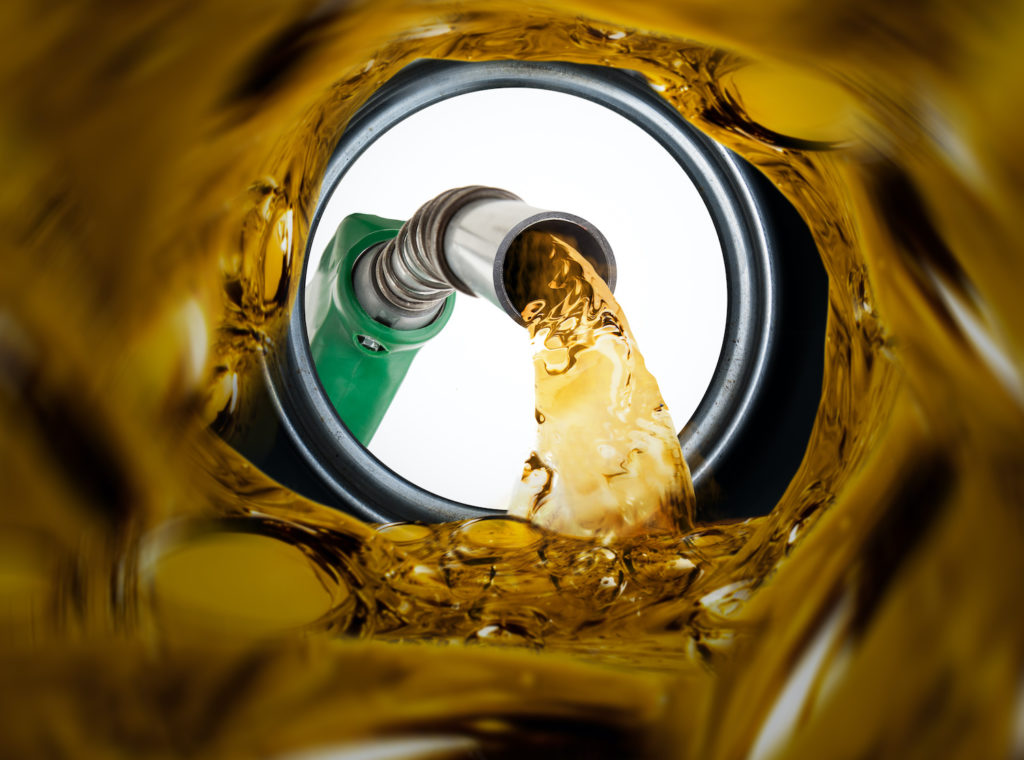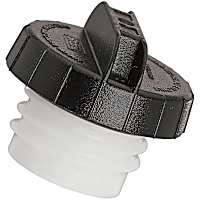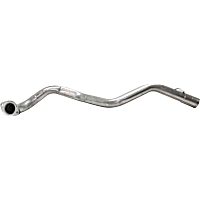In the movies, even a minor gasoline leak can immediately turn into a massive explosion—which is why to some, smelling fuel inside the car can be extremely unnerving. Plus, the stench of gasoline makes your car unpleasant to drive, and breathing fuel vapors can be bad for your health.
So, what are you going to do about the problem? To answer that question, you’ll need to find out what’s causing the smell in the first place.

4 Potential Reasons Why Your Car Smells Like Gas
There are a handful of reasons why your car might smell like gasoline. The most common causes include:
Loose Gas Cap
The number one cause of a fuel smell from your vehicle is (you guessed it) a loose or faulty gas cap.
To address the issue, start by ensuring the cap is intact and properly tightened.
Do you still smell fuel coming from the filler area, even after tightening the cap? Try replacing the cap. Fuel cap seals can degrade over time, allowing vapors to escape even when the cap is tight and secure.

It’s also worth noting that, if you have a faulty gas cap, your check engine light will eventually turn on. That’s because, on modern vehicles, the gas cap is an integral part of the evaporative emissions control system (EVAP).
Defect Elsewhere in the Evaporative Emissions Control System (EVAP)
Another common reason why you might observe a gas smell coming from your vehicle is a defect somewhere in the EVAP system.
You see, the EVAP system is responsible for trapping (then purging) fuel vapors to prevent them from entering the atmosphere. A leak somewhere within the system can easily result in a noticeable fuel smell coming from your vehicle.
As was mentioned, the gas cap is one common leak point within the EVAP system. Other prime suspects include the charcoal canister and the vapor lines between the canister and the purge valve.
When there’s a leak in the EVAP system, eventually, your car’s primary computer will notice and turn on the check engine light.

Liquid Fuel Leak
It’s no surprise that a liquid fuel leak can result in a fuel smell coming from your vehicle. The source of the leak could be anything from a leaking fuel line to a bad injector o-ring.
You (or your mechanic) will need to look around to find out.
Tailpipe Emissions
Although somewhat uncommon, one other reason why you might smell gas in your car is because of unburnt fuel entering the exhaust.
Certain problems, such as a stuck fuel injector, can be severe enough that you’ll see raw fuel dripping out of the tailpipe.
Is it Safe to Keep Driving When My Car Smells Like Gas?
Gasoline isn’t quite as combustible as they make it out to be in the movies. In Hollywood, when a car gets one bump, it instantly explodes.
But gasoline can burn. That’s why the National Fire Protection Agency (NFPA) lists gas as a flammable substance. Although you need a source to ignite the fuel in the first place (your car isn’t going to spontaneously burst into flames), it is possible for a car to catch on fire.
Also, fuel or fuel vapor leaks can cause other issues with your car (e.g, an illuminated check engine light).
More importantly, breathing fuel vapors can cause headaches, dizziness, and other health issues.
For these reasons, you should always address a gasoline smell from your vehicle right away.
Products Mentioned in this Guide
Any information provided on this Website is for informational purposes only and is not intended to replace consultation with a professional mechanic. The accuracy and timeliness of the information may change from the time of publication.


 Gas Cap
Gas Cap
 Tail Pipe
Tail Pipe





























